Last month I was in Dorchester for a few days’ writing retreat. The theory is that you concentrate on writing without distraction. But you also talk about writing and compare notes with other writers over meals, and even visit a few writing related places. The sitting muscles become cramped otherwise.
Dorchester is an old town. The area around the town was settled in prehistoric times, it became a Roman garrison and civilian town of Durnovaria complete with an aqueduct and amphitheatre, and developed later into an important commercial and political centre.
Judge Jeffreys presided over the “Bloody Assizes” after the Monmouth Rebellion, and the Tolpuddle Martyrs were put on trial in Dorchester. For many years the town was the home and inspiration of the author Thomas Hardy, whose novel The Mayor of Casterbridge uses a fictionalised version of Dorchester as its setting.
In brief, a lot happened there. For writers, visiting a site in such a place, even ruins, can give a glimpse into past people’s lives. What you see are the same mosaics Romans walked on, spilt drinks on, admired nearly two thousand years ago.
Max Gate, the atmospheric house Thomas Hardy designed himself in 1885, is where he wrote some of his most famous novels, including Tess of the d’Ubervilles and Jude the Obscure, as well as most of his poetry. Seeing his writing desk with its leather covered and brass studded chair in front of a large sectional window looking out onto trees can’t fail to convey the sense of his writing life.
So how do you take best advantage of a ‘site visit’? Prepare well. Look up the directions, opening hours, car parking and refreshment possibilities. With all that sorted out, you can focus on the place itself. Give yourself time to walk round the whole site before you go in. What is the landscape that surrounds it? Open fields, woods, streets? Is it crowded or deserted? Are there roads and tracks that connect it, or signs of older paths and bridleways? And perhaps there’s a river, ponds, lakes or the sea. What does the site smell of, even in 2016? Sea, rotting vegetation, grass, stone, nothing? Is it open and bright or dark, brooding almost sinister? What do you see if you turn your back on the site? Rolling countryside, a stone built harbour, narrow lanes, castle ramparts? And would a Roman/medieval peasant/ Victorian poet/Second World War sailor have seen the same?
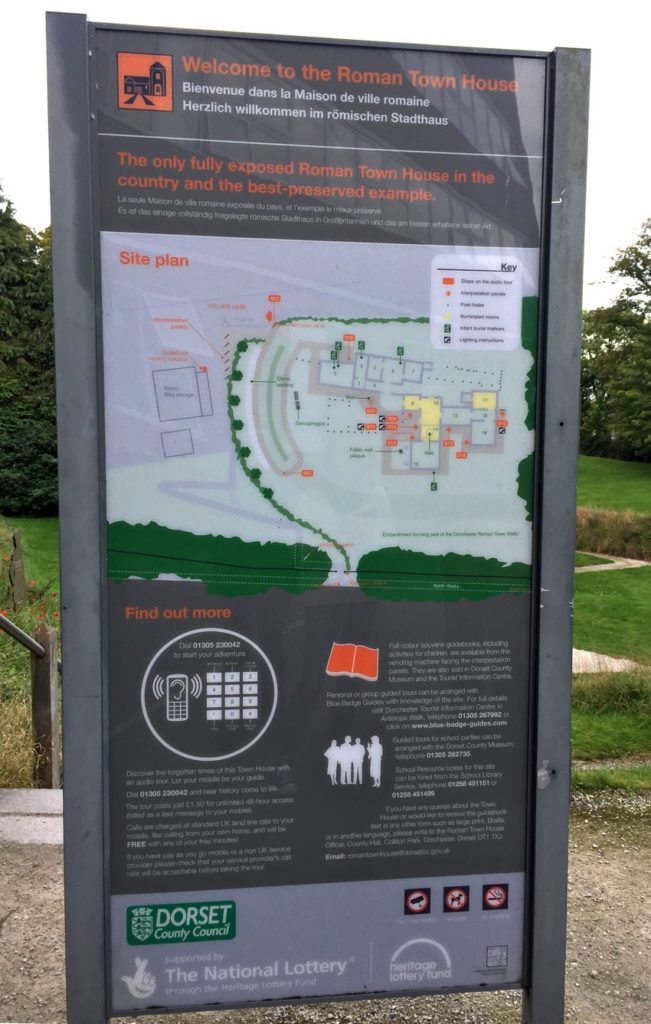 Once inside your site, read all the notices. Most give you excellent information in digestible lumps. Look at everything carefully and individually and talk to any stewards or staff. Jot things down in a notebook and take photos. Touch the walls and objects (if you are allowed to). And don’t be hurried along. Whether you’re in a ruined castle, stately home, or in a First World War trench in France or Belgium, stop for a few moments and shut your eyes.
Once inside your site, read all the notices. Most give you excellent information in digestible lumps. Look at everything carefully and individually and talk to any stewards or staff. Jot things down in a notebook and take photos. Touch the walls and objects (if you are allowed to). And don’t be hurried along. Whether you’re in a ruined castle, stately home, or in a First World War trench in France or Belgium, stop for a few moments and shut your eyes.
Take a deep breath and imagine the people living at the time it was occupied. Did they do back-breaking work in a soggy clay field for twelve hours, scrub their hands raw washing the mistress’s clothes, run up the guardhouse stairs to the rampart when the enemy hoved in sight, or play a lute to a sooth a fractious master’s bad temper at being refused an advantageous marriage alliance? Or perhaps they were a rich Roman merchant or administrator taking a cup of Falernian the slave brought theim at the end of a day’s work in Durnovaria?
When you start imagining people’s daily lives in the place, you will start to feel the atmosphere. After a while you could become distracted, even immersed by re-creating their existence in your mind. Yes, you have your notes and photos, but having seen evidence of the lives of people who walked on those flagstones, drew water at that well, used those trade counters, wrote at that desk, you feel sympathy with and even a bond with them. Then it can overwhelm you.
I’ve stood on Roman roads or in a forum or by a temple steps and completely lost my feeling of the present. I’m there, stepping out of the way so a cart or a imperial courier doesn’t run me down, or I don’t get jostled by the crowd listening to a speech from the rostra. or my waist belt pocket picked by some scruffbag from the Subura.
Every time you deliberately re-imagine people’s lives through their things that have survived, the more this feeling seizes hold of you. The next time you go to another place where people have lived in the past, you will walk into that world without thinking about it.
Am I a little deranged, or do you do this too?
Alison Morton is the author of Roma Nova thrillers, INCEPTIO, PERFIDITAS, SUCCESSIO and AURELIA. The fifth in the series, INSURRECTIO, was published in April 2016.
Find out more about Roma Nova, its origins, stories and heroines…
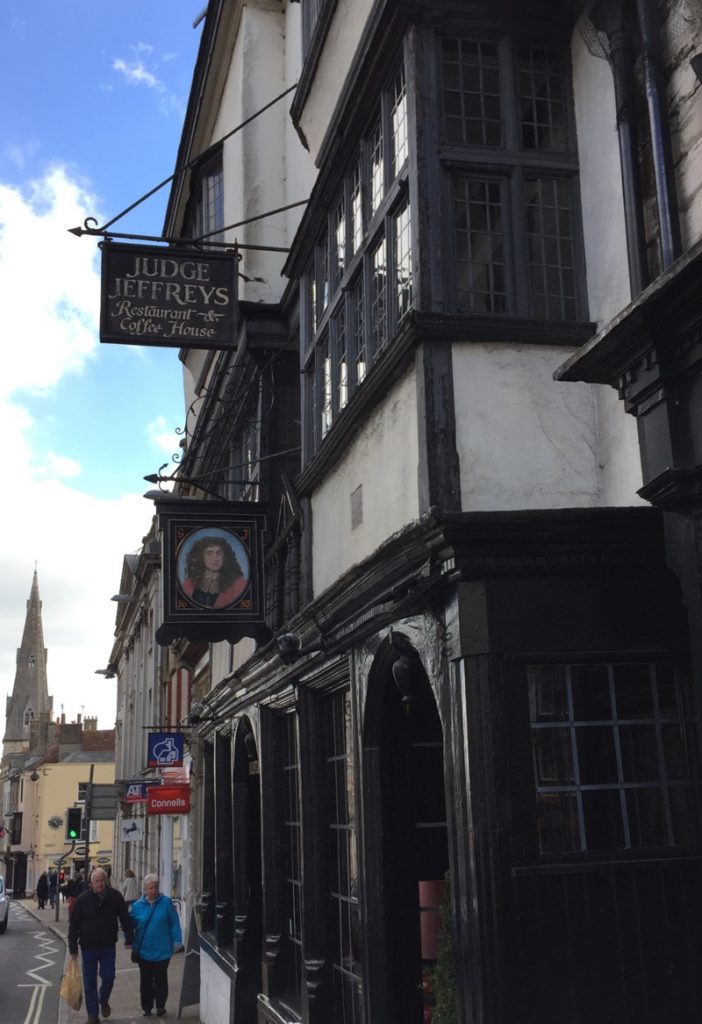
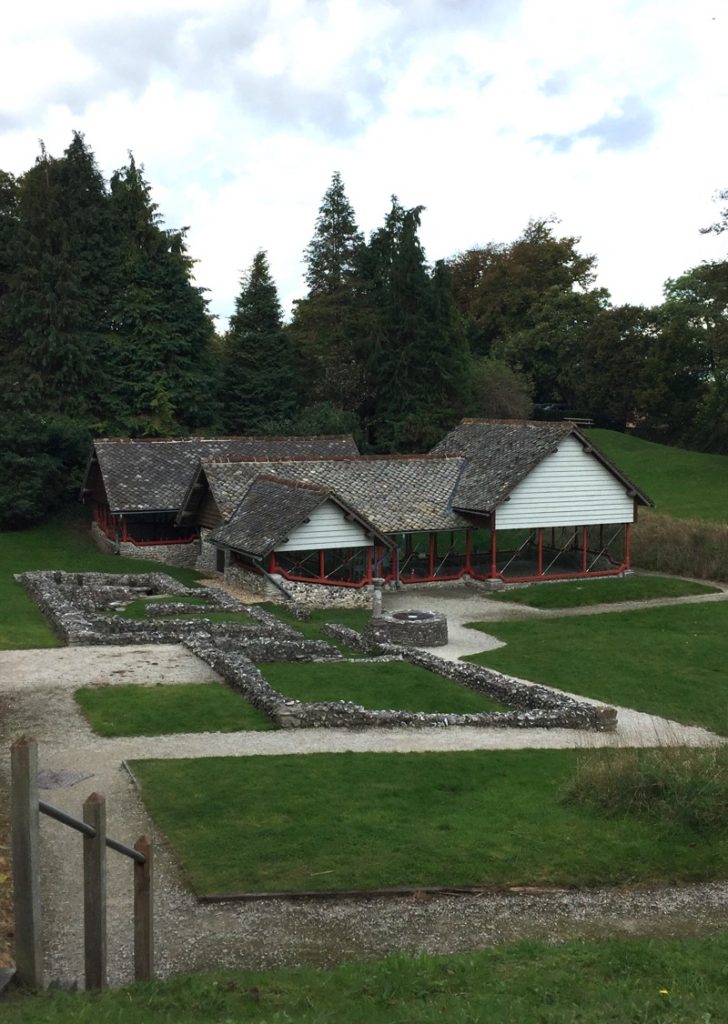
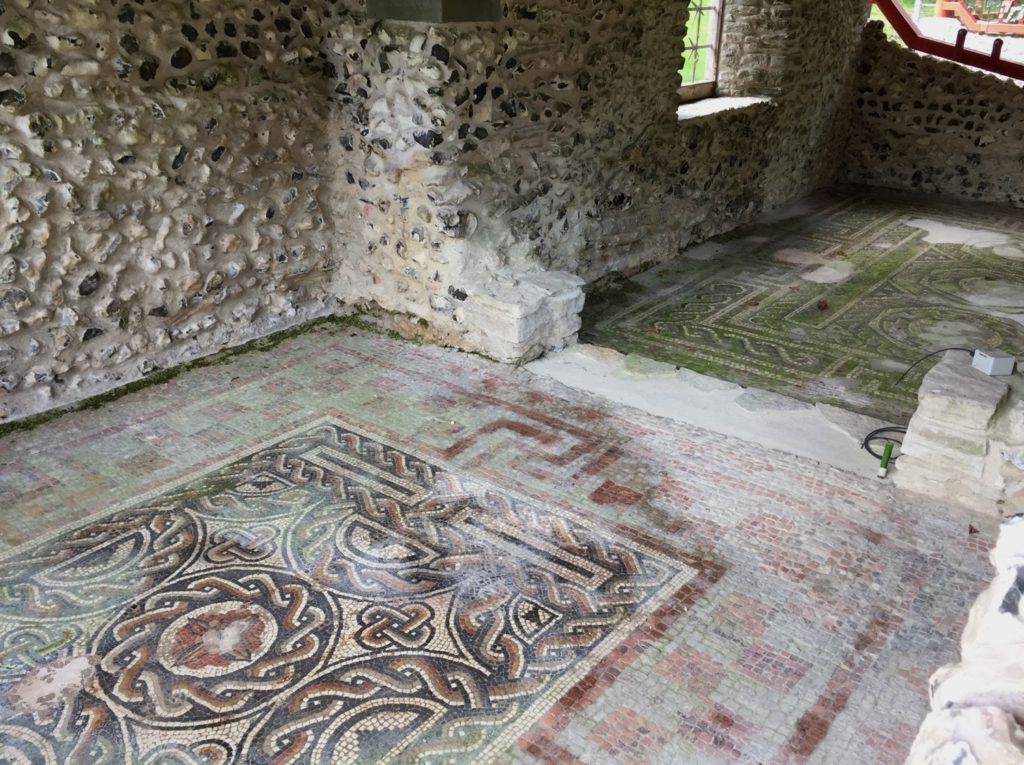
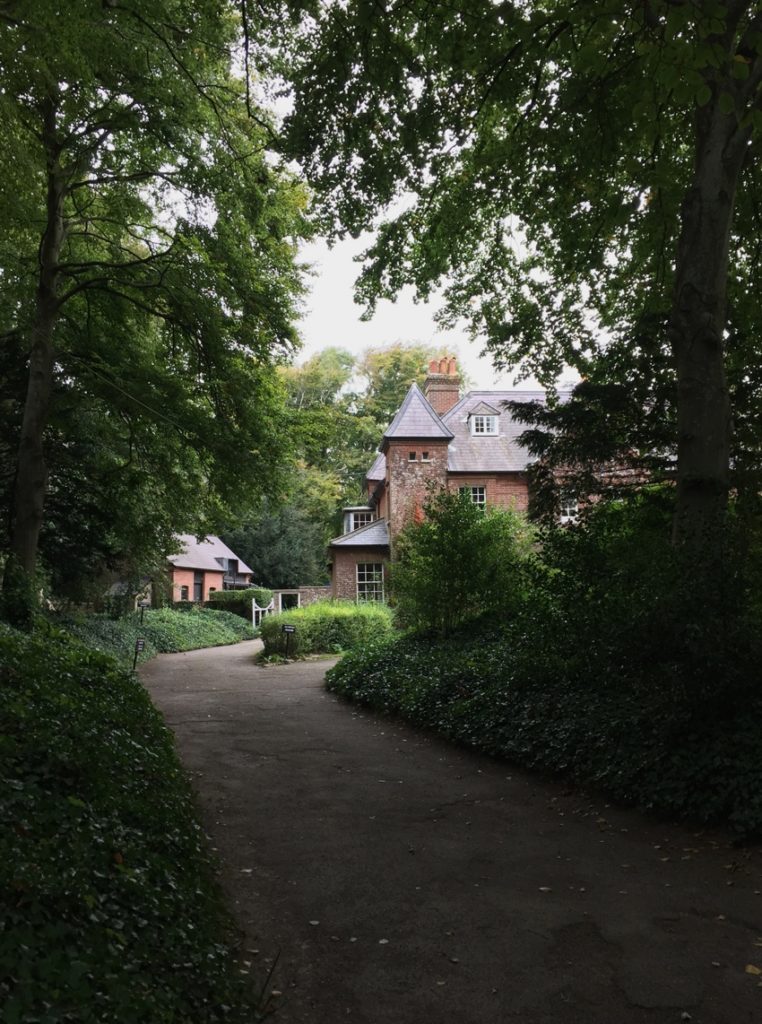
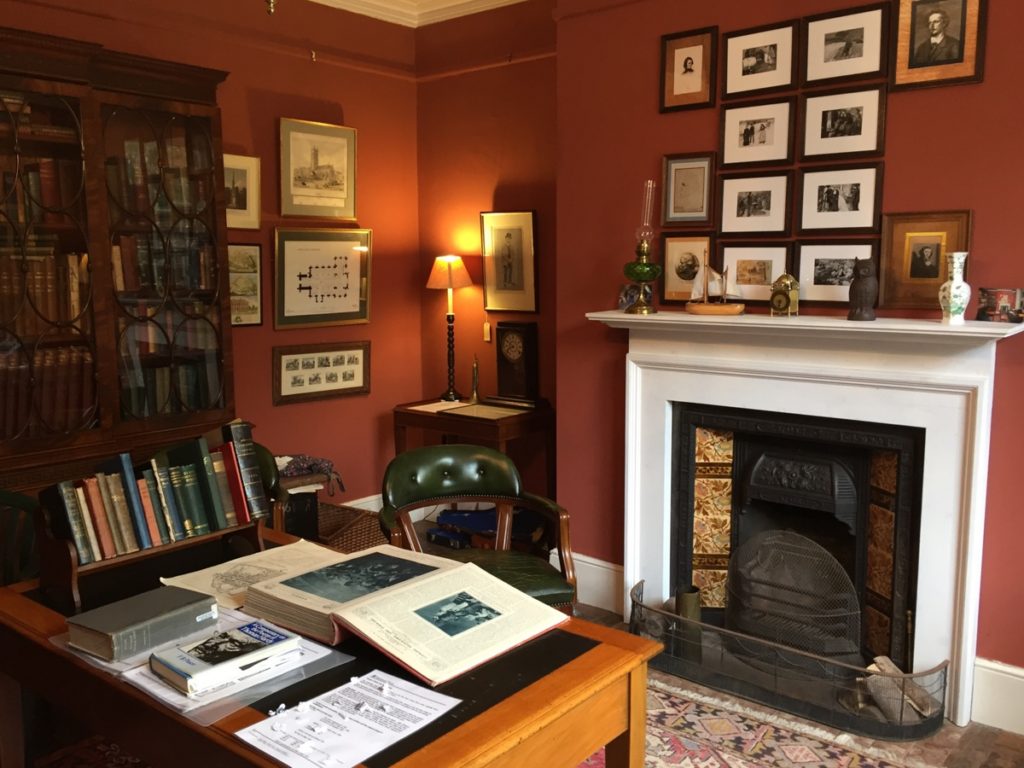
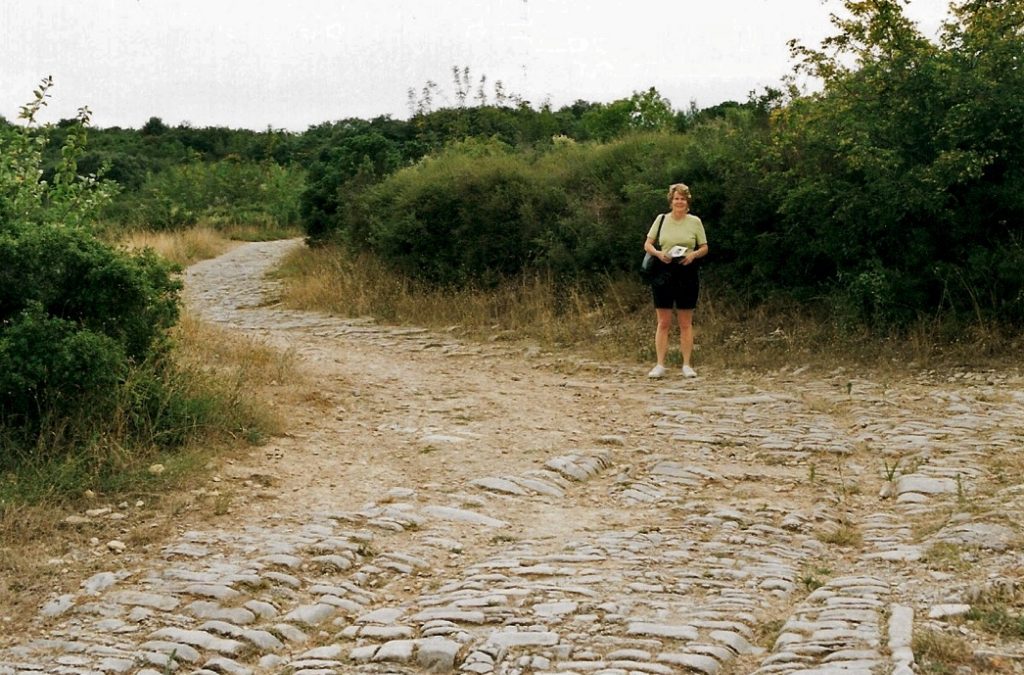













No, not deranged or at least if you are, I’m in the same pickle as you. Lovely post, Thanks.
Glad I’n not alone… 😉
Great post and pictures 🙂
Thank you. I really appreciate that, coming from you!